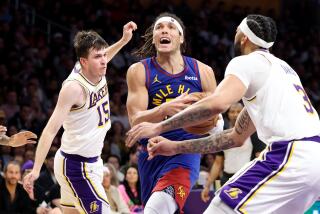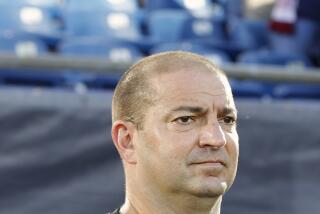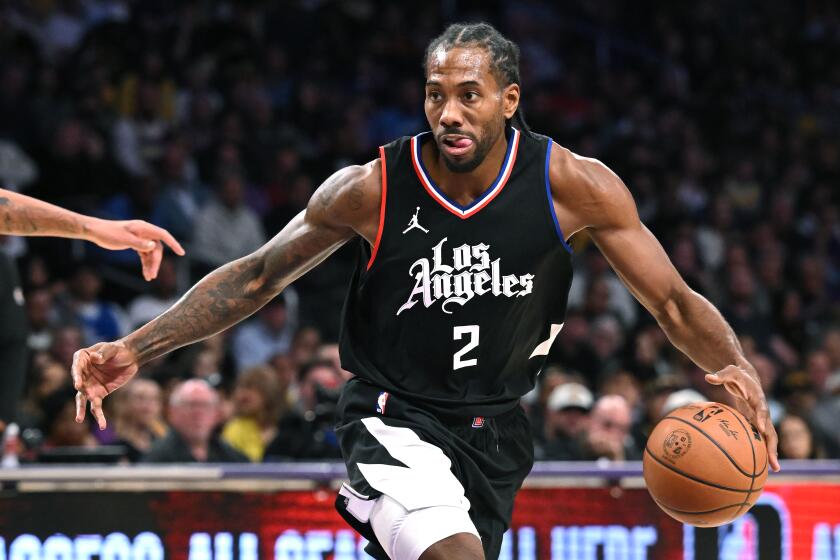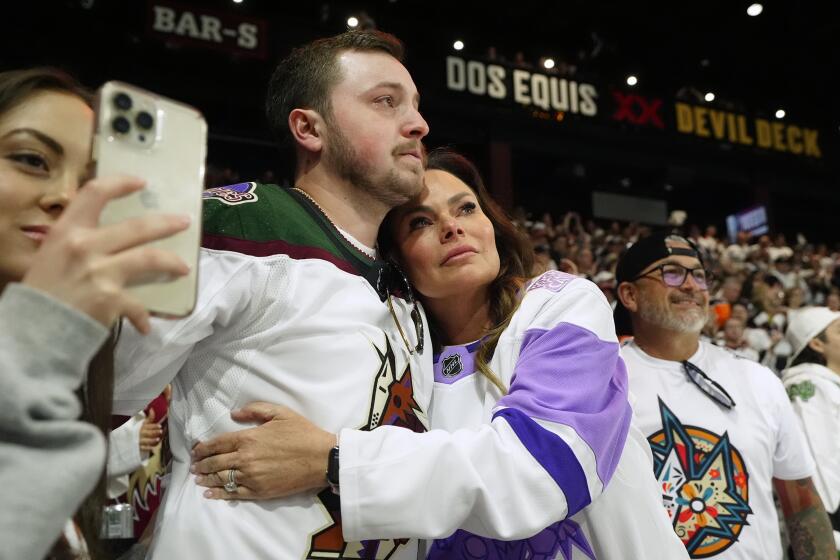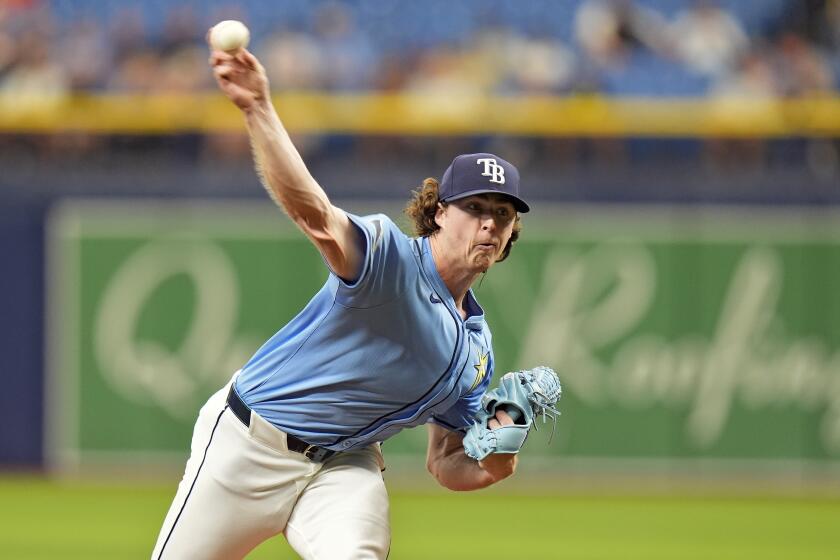Bullying is not ‘bonding’
It’s hard to think of Jonathan Martin as a hapless victim of bullying. He’s 6 foot 5, 312 pounds, with a Stanford education and a job he loves.
At least he seemed to love it until last week, when he walked away from the Miami Dolphins football team because of what he considered relentless torment and his teammates considered harmless hijinks.
Was it bullying or bonding? The conduct included racial slurs, ugly insults and crude threats -- packaged as an effort to toughen up a young player who loves literature as much as he loves football.
Martin, 24, checked into a hospital for emotional distress, then headed home to Southern California with his parents. Teammate Richie Incognito -- his mentor and tormentor -- has been suspended by the Dolphins for conduct detrimental to the team.
Sports commentators have been flailing around on TV and radio all week, trying to find a way to categorize this: It’s racism because Incognito used the N-word in a message to Martin. Or classism because players from elite schools are considered soft targets in raucous locker rooms.
The players themselves seem to have trouble distinguishing villain from victim.
Incognito is, depending on perspective, a bully or a builder. A Pro Bowl player with a years-long rap sheet of offenses and suspensions, he was once voted the “dirtiest player” in the NFL. But he was also elected by his teammates to the Dolphins’ leadership council.
Martin, a second-year player of uncertain potential, is now an object of derision: He didn’t fit in. He should have fought back. He’s a thin-skinned wimp who’ll pay the price for ratting out a teammate.
In the National Football League, that just isn’t done. That’s what makes this case a shocker.
It’s not the hazing and slurs; we’ve encountered that before.
It’s the fact that one young player -- known as “Moose” at Stanford and “Big Weirdo” by the Dolphins -- dared to breach the macho locker room code by refusing to tolerate treatment that no workplace should allow.
::
Martin is not the one who ought to be embarrassed. The “weirdo” label belongs on Incognito and his crew.
What’s been described as the last straw for Martin sounds like a scene from the “Mean Girls” movie: Martin sits down at a cafeteria table and a bunch of giant football players stand up, grab their trays and flounce off.
Really, guys? “You can’t sit with us.” That’s your team-building strategy?
The Dolphins’ offensive line -- where Martin and Incognito play side by side -- is the worst in the league at its most important job. They’ve allowed the team’s quarterback to be sacked 35 times in the season’s first eight games.
Does Incognito think that threatening to slap Martin’s mother -- as he did in his foul-mouthed voicemail -- is going to make the young man play better and improve the team’s performance?
I understand the role of hazing in building camaraderie. It’s probably at its most extreme in football, where player tenure is short and pecking order matters.
But where’s the line? When does it shift from demanding to demeaning?
The Dolphins’ fan brochure for its Halloween game included team leader Incognito calling Martin “the easiest teammate to scare.”
Is that a good-natured jibe, or a way to humiliate a teammate?
“Hazing, in a way, is establishing a kind of masculine social order,” said UCLA psychology professor Phillip Atiba Goff. It’s a way of establishing one group’s dominance by asserting authority over others.
“If you don’t have it well-regulated,” he said, “it turns into abuse.”
And if the person being abused doesn’t feel safe speaking up, “that’s not a problem with him,” Goff said. “That’s a problem with us.”
::
We don’t know yet what Martin is thinking or plans to do next. The NFL is investigating the team, the tension and Incognito’s alleged taunts and threats.
The term “bullying” doesn’t do justice to what’s been happening in Miami.
“By calling it bullying, we’re casting the actors in this terrible drama as adolescents, and forgiving it like these are people coming into themselves, instead of adults who need to be held accountable for basic workplace professionalism,” Goff said.
“Just because it’s normal in football doesn’t mean it’s OK,” he said. “Workplace harassment is normally what you call it when adults engage in this kind of behavior.”
Football is a rough, aggressive game, with a premium on toughness. Players take pride in that and people who love the game -- and I do -- admire their passion. The trash-talking Incognito has support because he reflects that mindset.
But Martin represents something just as important; it’s what captivates me about the games that I watch on Sundays: the boyish exuberance of big men, the teamwork the sport requires.
This is not about “boys will be boys” and locker room antics. It’s about expecting basic standards of respect and civility to govern the workplace -- even when that workplace is the National Football League.
“There is something wrong with any workplace,” Goff noted, “where someone feels they’re not allowed to say this form of racial harassment and physically threatening behavior is wrong; where they have to leave their job because they don’t feel comfortable; where they don’t have any allies willing to speak up.”
Maybe this will shine new light on an outmoded custom. Hazing isn’t a motivational tool that works in the NFL. At best, it’s a harmless nod to tradition; at worst, it can feel like a sanctioned source of workplace terrorism.
And maybe it took the guy from Stanford to teach us that lesson.
--
Twitter: @SandyBanksLAT
More to Read
Get our high school sports newsletter
Prep Rally is devoted to the SoCal high school sports experience, bringing you scores, stories and a behind-the-scenes look at what makes prep sports so popular.
You may occasionally receive promotional content from the Los Angeles Times.
